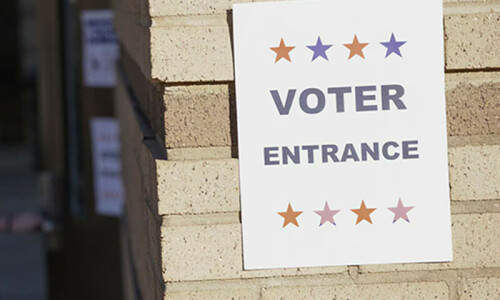HE promised to return to Pakistan before leaving the country to visit his ailing wife in London, and now, after his conviction and sentencing by a NAB court, he has pledged to come back later this week.
Nawaz Sharif ought to dispel all uncertainty and return to Pakistan as promised. Whatever his, the Sharif family’s and the PML-N’s concerns about the NAB judgement may be, there is a legal process to be followed and Mr Sharif must continue to submit to it.
The democratic project will not be strengthened if national political leaders chart a course for themselves that is outside the rule of law and the Constitution.
From a democratic perspective, however, it is apparent that the next parliament will need to turn its attention to an area that the collective political leadership has ignored for too long: transparent, fair and meaningful accountability of all public officials.
Ostensibly, there exists a political consensus to overhaul the country’s accountability laws and mechanisms. Successive parliaments and federal governments have pledged to reform NAB or replace the premier accountability institution with an empowered, autonomous and transparently functioning organisation. Yet, a decade has gone by and the country is no closer to a system of accountability that is across the board, non-partisan and trusted by wide a cross section of the public.
It is also true that in a decade of democracy, despite all major political parties having been in power at either the provincial or federal tier for a substantial period of time, none has itself acted against its party members for corrupt practices. The PTI has named and shamed allies and some of its own party members in KP, but no meaningful action was taken. Indeed, an embrace of so-called electables and big-spending politicians by all political parties virtually endorses corrupt practices among politicians.
It also remains true that other institutions of the state have been reluctant to include themselves in an across-the-board accountability regime run by independent professionals and legal experts.
So between politicians being unwilling to act against party leaders and members and institutions of state demonstrating enthusiasm for accountability of politicians but not of unelected institutions, the system is delivering what appears to be selective accountability once again.
Positive change is possible, but it will require courage and statesmanship by the political class and a spirit of cooperation by other institutions.
Certainly, those who seek the vote of the people and elected office should be held to a higher standard of conduct than the average citizen. But politicians cannot be treated as second class and third rate by other institutions.
The lack of accountability is not the only reason why democracy is still weak in Pakistan, but the absence of meaningful accountability can be and has been used by anti-democratic forces to achieve political ends. The next parliament must deliver an across-the-board accountability process.
Published in Dawn, July 9th, 2018













































